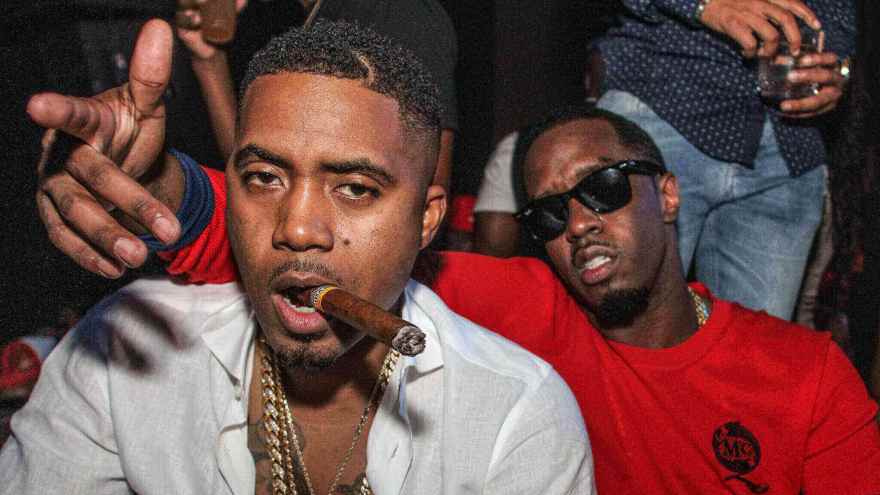Videos by According2HipHop
If you ask the average 16 year old Hip-Hop fan and the average 30 year old Hip-Hop fan what they listen to on a regular basis, you will find that there is a clear generation gap. A once united front in the expression and mouthpiece for inner city youth culture, Hip-Hop has now found itself with a divided audience. Unlike the “commercial versus back-packer” movement, this division has and will only grow as the music ages. Those on the more mature side of the listener population are increasingly finding themselves marginalized in today’s music that seems to be dominated by “ring-tone anthems” and “bling rap.” If Hip-Hop is to have a bright future, it should find ways to cater to this ever growing adult audience with a brand of Hip-Hop that will appeal to this audience’s mature sensibilities. You may call this brand of music “grown man music” or “adult contemporary Hip-Hop;” but whatever you call it, there needs to be more of it.
Hip-Hop was the music that your parents hated. It was in your face, aggressive, and it “stole” (sampled) from the songs they loved growing up. The parental advisory sticker that graced the covers of many Hip-Hop albums ironically enhanced their appeal to a younger audience. For some who grew up in the environments that were explicitly documented on some of Hip-Hop’s harder songs, it was refreshing to hear someone speak nakedly on a reality they faced every day. For those who hadn’t grown up in that environment, it was an act of rebellion to their privileged and cushy lifestyle. They may have come to the music for different reasons, but they all stood unified in exalting the culture and magnifying its importance.
But as Hip-Hop grew in popularity, scope, and commercial viability, so did its audience. The music that was once a stranger to pop radio, the Grammys, MTV (outside of Yo! MTVRaps), soon found itself at the center of pop music. Hip-Hop stars like Ice Cube, Ice T, and Will Smith soon became television and movie stars. Not just parents, but grandparents could name drop marquee emcees like Jay-Z, Tupac, Snoop Dogg, and Kanye West. Lauryn Hill, the third and arguably most talented Fugee, didn’t just win a Grammy, but she also broke the record for most won in a year. Major labels took notice of the music’s commercial viability and soon started to farming out music that emphasized quantity over quality. Finally, those kids who were hiding CDs and tapes from their parents in the 80’s and 90’s became adults. Adults who had made their way out of those harsh realities or were struggling to raise a family in the streets they once championed with chest thumping pride. They found the content glorifying violence, misogyny, mindless celebration, and hustling were not only foreign but at times repellent.
So what would a music that appeals to a more mature Hip-Hop audience sound like? What themes could emcees explore that would signal to their listeners that they have “come of age?” There are signs that the music has risen to this challenge. Kanye West and Jay-Z on their collaborative album Watch the Throne grew from exploring the impact and influence of their parents on their lives to waxing poetic about their own children and how their respective success would impact and influence the lives of their offspring on “New Day.” Nas touched on it when he discussed adult immaturity on “Second Childhood.” Common took the conversation of race to new places when he explored the meaning of blackness and achieving success without compromising street loyalty on “Black Maybe.” While great songs in their own right, what makes these songs stand out from other Hip-Hop gems are the introspective and analytical ways they explore the challenges that come with adulthood. Phonte of Little Brother with his solo debut Charity Starts at Home, took this concept and ran with it. It may be easy to draw the conclusion that adult Hip-Hop equals conscious Hip-Hop. However, Phonte proved this notion wrong when he abandoned the political and social commentary of conscious rap and instead explored such topics as maintaining fidelity, being a leader in his family, and dealing with failure. He laid this all over a soulful landscape that may win over the most skeptical adult listener.
The Roots, who have arguably been making this type of music for years, explore the complexities of what exactly makes a young man take the wrong path in life on their album Undun. Rather than the common introspective or prospective narrative of the thug narrator, The Roots have taken on a more difficult challenge of trying to unpack how decisions can shape a person’s life. Nas has plans to go into detail about his personal life and struggles with fatherhood and the pain of divorce on his tenth studio album Life is Good. With these albums it was believed that Hip-Hop was rising to the challenge of it’s mature listeners. Who better to usher in this new installment of adult contemporary music than the very emcee’s we grew up listening to and whose records we kept hidden from our parents. It looks like the fans and artists alike were growing together all along.






















